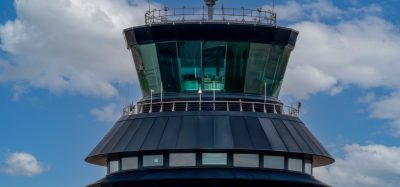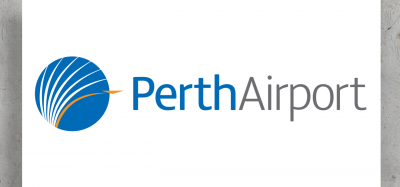Preventing psychological impacts on airport staff and passengers
- Like
- Digg
- Del
- Tumblr
- VKontakte
- Buffer
- Love This
- Odnoklassniki
- Meneame
- Blogger
- Amazon
- Yahoo Mail
- Gmail
- AOL
- Newsvine
- HackerNews
- Evernote
- MySpace
- Mail.ru
- Viadeo
- Line
- Comments
- Yummly
- SMS
- Viber
- Telegram
- Subscribe
- Skype
- Facebook Messenger
- Kakao
- LiveJournal
- Yammer
- Edgar
- Fintel
- Mix
- Instapaper
- Copy Link
Posted: 19 December 2019 | Nishtha Jain | No comments yet
Nishtha Jain, Psychology Undergraduate at Christ University, Bangalore, expresses the opinion that each airport should create a mental health care unit for the wellbeing of both passengers and staff.


The air travel industry is growing day by day. Airports across the world serve a variety of people and airport authorities need to plan well in order to cater to the demands of both passengers and staff. There are numerous issues faced at airports and dealing with them solely at a physical level is no longer sufficient. It is time that airports considered this.
With factors like unpredictable waiting lines for baggage check in and security checks, baggage weight and size limits, baggage damage and misplacement, the high cost of air travel and flight-related issues, air travel continues to be a significant source of stress for travellers. Various factors like rude or confused passengers, inadequate training and supervision, staff shortages, improper working hours and a lack of resources are the major sources of stress for staff.
With a history full of airport accidents, bombing, terrorist attacks and thefts, safety was and continues to be a major concern for all. So far, airports have been able to provide a satisfactory level of physical security. However, there is little or no provision to provide psychological safety.
Psychological impacts on both staff and passengers
Huge, crowded, confusing airports become a source of stress for first-time travellers, individuals travelling alone or for those who travel very rarely. Especially for international travellers who are not familiar with the local language, it becomes difficult for them to figure their way out in case they get lost and need help. Therefore, at any airport, it is important that staff are respectful and sensitive to passengers from different ethnicities and demographics.
Having international standards regarding an airport’s layout and instruction method (i.e. symbols and signboards) will provide ease of navigation and help avoid undue confusion faced by travellers. Psychologists can work with designers and architects to determine the appropriate positioning and layout of signboards such that they easily catch the attention of passengers and can be comprehended effectively. Clean, silent and organised airports give a sense of relaxation to both passengers and staff. They can prove to be especially useful in emergencies by making it easy to guide and evacuate people.
The ground staff form the airport workforce and are a crucial element. An airport’s layout affects various aspects of their work, for example efficiency, accuracy, communication and work satisfaction. Poor working conditions such as a noisy, dirty, disorganised work environment negatively affect the quality of work completed.
For staff working at check-in counters, it is important that their work desk and seating arrangement are adequately designed and comfortable enough to work efficiently without getting distracted. Workplace design plays a crucial role for ATC as well. Their interactions are likely to be affected by the proximity between workers. Good proximity between ATC staff can help them work together effectively, and controls for the ATC and ground staff can be designed by psychologists using various psychology concepts to ease understanding and use. Ensuring comfort is crucial, as it will help them sustain attention and concentrate on their work.


Airports can become very stressful for passengers not used to travelling regularly
There are major human factors that affect workers
However, focusing on the physical environment alone is not sufficient. Following the Tenerife Airport disaster in 1977, psychological aspects began to be considered in training and work procedures. With 80 per cent of accidents occurring due to human factors, it is essential that airport authorities and airlines pay attention to the human factors that affect an airport’s environment. This makes CRM a necessity.
CRM stands for crew resource management and involves training in areas like decision making, leadership, situational awareness, cooperation and communication. It is essential that CRM training be done together for the ground staff and the flight crew to ensure better coordination. Staff should not be just trained in CRM, but the importance of CRM should be explained to them so that they can effectively make use of those skills. This can be done by helping them understand the significance of their jobs by providing examples of crashes that occurred due to poor management. Emphasising how the ground staff can effectively work to curb accidents will motivate workers to do their job well and avoid errors.
Psychological factors like working hours, lifestyle patterns, stress, personal problems, substance abuse, unrealistic goals and organisational pressure all impact ground staff and need to be taken into account.
These factors are especially relevant for aviation maintenance technicians (AMTs). An aircraft’s safety largely lies in the hands of AMTs. Small mistakes during maintenance checks can have a huge impact on the aircraft during flight. Proper maintenance not only enhances the overall safety of the airport but also helps reduce the extra costs incurred due to accidents.
Communication is essential for any workplace
It is essential for ground staff to learn to communicate empathetically. Passengers approach staff when they are a position of need and require help. Paying attention to the demographic details of passengers is important. It will help them modify their manner of communication and ensure that what they say is clearly understood by the passenger. Working to ensure safety alone is not enough. It is essential to emphasise the comfort of the passenger along with safety. Helping staff build patience along with this understanding will help them deal with passengers as individuals rather than just considering it as their job.
For ATC and AMTs, smooth communication comprising of clear instruction can help avoid misunderstandings and mishaps. Specifically for AMTs, when handing over tasks during shift changes, it is essential that precise instructions are given and checklists are signed off only after proper completion.
Psychologists can help design specific modules to teach and encourage teamwork among the staff and develop good communication skills. It is important to teach assertiveness to workers, especially at lower levels so that they can point out faults in the system (technical, human and organisational) and ensure that organisations work to fix them. Removing communication barriers will help create an effective work culture wherein two-way communication occurs between various levels of authority in the system, thus leading to a culture that facilitates cooperation and mutual respect.
Staying up to date in the field of technical terms is not enough. Aviation psychologists can implement education cycles for staff and airport designers in order to help them become aware of human factors and modify their working patterns accordingly. Psychologists can provide training for staff to make them sensitive towards others’ needs, develop basic knowledge about emotional states and how to deal with them, along with developing a positive attitude towards work. Developing a positive work attitude can help combat complacency and focus on gaining knowledge and expertise.


An organised work place can help airport staff remain calm and efficient
Long working hours often lead to fatigue
AMTs who work under physically strenuous conditions like poor lighting, confined spaces, extreme temperatures, slippery floors and humidity are more likely to face fatigue. They even tend to face work-related injuries. Moreover, their work tends to be boring and repetitive which results in complacency. Fatigue results in poor quality work by causing distraction and lack of adherence to norms as workers reach a stage where they want to finish tasks as fast as possible and therefore do not pay attention to details. Accumulation of such factors often leads to errors and mishaps.
Thus, working hours and patterns should be designed such that the staff gets adequate rest periods and are not overstressed. It is of specific importance for night-shift workers as their work routine goes against the normal circadian cycle. Disturbing the sleep cycle can result in various physical and mental health problems like insomnia, fatigue, poor concentration and personal problems. Night-shift workers should sometimes be given daytime duties to help them maintain a balance.
Stress significantly contributes to the quality of work
Healthcare workers and psychologists can provide regular training sessions for staff on how to maintain a healthy lifestyle and educate workers on how to effectively deal with stress. As they possess knowledge regarding learning styles and patterns, they can develop techniques that are easy to understand and implement.
Mental-health-based holidays can be introduced for all airline workers. Paid leave can provide staff adequate time to cope with mental exhaustion and mental health issues without facing additional financial stress. This can help avoid staff reaching a stage of burnout.
These days it has become mandatory for organisations to have an in-house psychologist to cater to workers’ mental health requirements. For ground staff, the airport is the workplace. Therefore, airports should take measures to provide psychological services for their staff.
In-house aviation psychologists
Having a full-time team of aviation psychologists at every airport can be extremely useful. These psychologists can cater to the needs of both staff and passengers by identifying various factors affecting them and determining ways to optimise them.
For the staff, in-house psychologists can provide counselling services to help them deal with every-day stressors effectively. They can guide them on how to deal with personal life and relationship problems as well. It is crucial to address these areas as personal life problems that are likely to impact staff work performance.
Moreover, airports can take various measures to ensure the good health of workers and staff. Nutritious meals should be made available for workers along with other basic amenities. Having relaxation spaces will help provide staff with long working hours the ability to take proper breaks before they return to their duties. Adequate supervision and a good organisational environment are also necessary.
For passengers, psychologists can help them deal with the mental impact of jet lag, cater to the fatigue faced as a result of long-haul or delayed flights and help deal with flying anxiety. They can be especially helpful when reassuring passengers and staff in emergencies.
Therefore, in addition to first-aid centres, a mental-health care unit should be created at airports. There is a need to accept human limitations and work on human capabilities instead. Regular and quality training needs to be provided to staff in order to deal with the various factors mentioned. Aviation psychologists can build modules that cover these aspects in the aviation context and thus need to be included in the training and designing of teams.
Adequate ways of dealing with various human factors will automatically reduce the stress and problems faced by the ground staff, technicians and ATC. This, in turn, will help enhance the quality of service provided by the airport. Attrition of the workforce can be prevented by ensuring the good health of the staff along with quality work conditions. Overall, building a positive environment at airports will be useful for all.
Related topics
Accidents and incidents, Passenger experience and seamless travel, Recruitment and training, Regulation and Legislation, Workforce


















